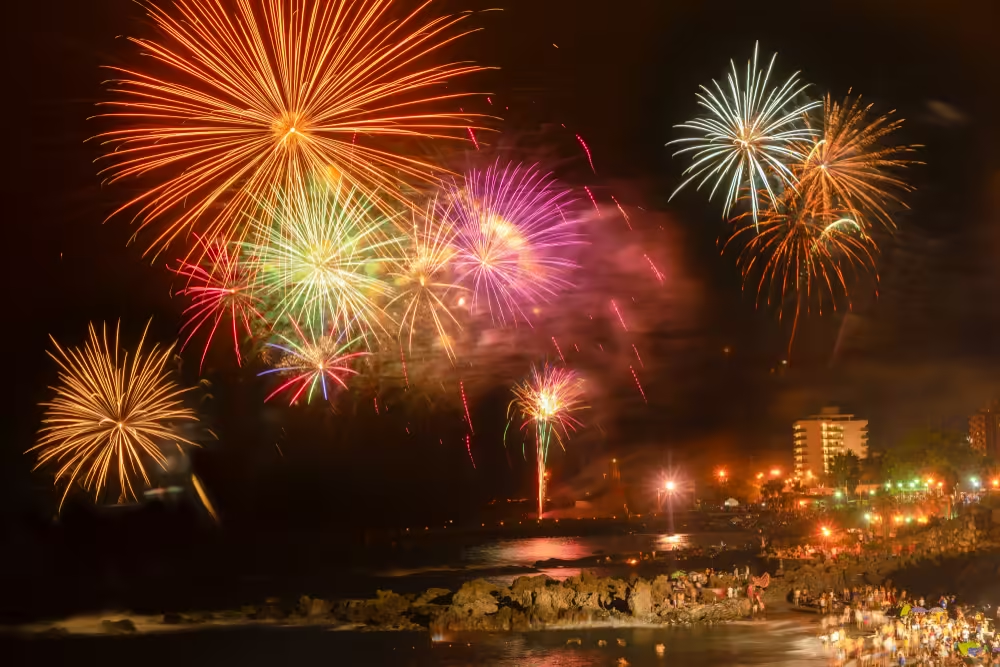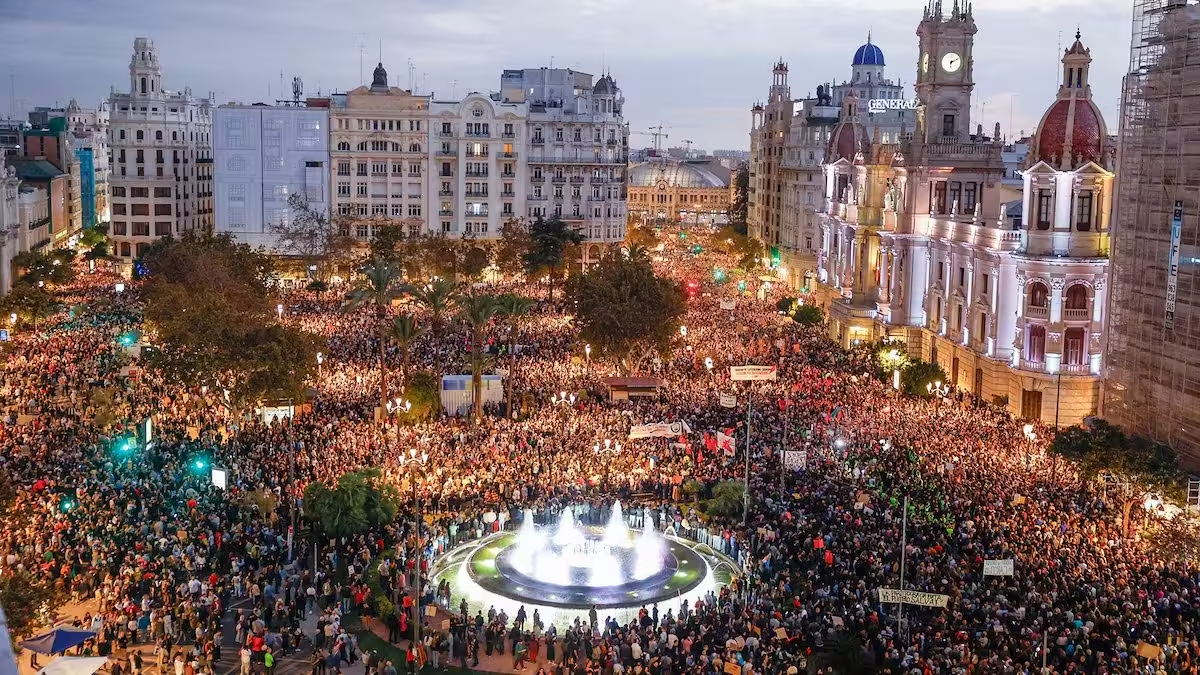A Guide to the Fiestas de San Juan in Spain
Everything you need to know about Spain’s magical midsummer celebration
If you’ve never heard of the Fiestas de San Juan before, you’re in for a surprise. This is one of Spain’s most exciting and unique summer festivals, and it happens every year in June, mainly on the night of the 23rd to the 24th. It mixes fire, water, tradition, and partying, especially in towns and cities along the coast.
Here’s your full guide to what it’s all about, where to go, what to expect, and how to enjoy it like a local.
What is San Juan and Why Is It Celebrated?
San Juan (Saint John) is a celebration of the summer solstice, the longest day of the year, even though it’s named after a saint. It has pagan roots that go back centuries, when fire and water were seen as symbols of protection and renewal.
Over time, the Christian calendar linked the event to Saint John the Baptist, but the spirit of the festival remains the same: burning away bad luck, celebrating light, and looking ahead with hope.
When and Where Does San Juan Take Place?
The main celebrations happen on the night of June 23rd, leading into June 24th, but in some cities, festivities last for several days.
The most popular places to celebrate include:
- Alicante – Famous for its large-scale ‘Hogueras de San Juan’ festival, complete with giant sculptures and fireworks.
- Valencia – Known for beach bonfires and all-night parties.
- Barcelona – Locals head to the city beaches like Barceloneta to celebrate with fireworks and music.
- Málaga and other Andalusian towns – Coastal celebrations with a more relaxed but still lively atmosphere.
- Galicia – In the north, San Juan has a more mystical feel, with traditional spells and local customs.
What Happens During the Night of San Juan?
The most iconic part of the celebration is the bonfires on the beach. As the sun sets, people start lighting fires, some small and personal, others big enough for a crowd to gather around. It’s normal to see families with picnics, groups of friends playing music, and kids running around with sparklers.
Here are some key traditions you might see:
Jumping Over the Fire
This might sound dramatic, but it’s a common San Juan tradition. People jump over small flames (never the big bonfires!) three or seven times to bring good luck and ‘burn away’ bad energy from the past year.
Midnight Swim
Another classic is going for a swim in the sea at exactly midnight. It’s believed to purify your soul and bring health and good fortune. Even if you’re not superstitious, it’s a fun and refreshing way to cool off after dancing around a fire.
Burning Wishes or Fears
Some people write down their wishes or things they want to leave behind on pieces of paper, then throw them into the fire. It’s a symbolic way of letting go and starting fresh.
What to Bring with You
If you’re planning to join the celebrations, here’s a quick list of what to take:
- A towel and swimsuit if you’re up for the midnight dip
- Comfortable clothes (you might get sandy or a bit wet)
- Snacks and drinks – many people bring food and have a picnic-style dinner
- A lighter or matches if you want to light candles or a small fire (check local rules first)
- A plastic bag for your rubbish – keep the beach clean!
Local Tips for Enjoying San Juan
Arrive early to find a good spot, especially on busy beaches.
If you’re in Alicante or Valencia, try to catch one of the parades or firework shows earlier in the evening.
Be respectful of local customs and follow any fire safety rules.
Keep an eye on your belongings—beach parties can get crowded.
Don’t forget to look up! There are often fireworks going off all around you.
San Juan in Alicante: A Festival in Its Own Right
In Alicante, the Fiestas de San Juan are a major annual event that lasts from around mid-June to June 24th. There are:
- Huge satirical sculptures (like the Fallas in Valencia)
- Parades, mascletàs (daytime firework shows), and concerts
- The Cremà, where the sculptures are burned on June 24th
It’s more than just one night, it’s a full festival that takes over the city. If you’re in the region, it’s worth a visit.
Is San Juan a Public Holiday?
June 24th (Saint John’s Day) is a public holiday in some parts of Spain, especially in the regions where the celebrations are strongest, like Alicante, Cataluña, and Galicia. Shops and banks may be closed, so plan ahead if you need anything.
A Festival of Light and New Beginnings
Whether you’re there to party until sunrise, take a quiet swim under the stars, or just watch the fireworks from a distance, the Fiestas de San Juan offer something special. There’s no big stage, no dress code, and no tickets, you just show up, take part, and soak in the atmosphere.
It’s a celebration of summer, of life, and of new beginnings. And for many people living in or visiting Spain, it’s one of the most unforgettable nights of the year.
Be Careful – Stay Safe During the Festivities
While San Juan is a fun and exciting night, it’s also one of the busiest and sometimes most chaotic nights of the year. Every year, emergency services report a high number of burns, injuries, and even fires caused by people getting too close to bonfires or using fireworks carelessly.
It’s important to stay alert, especially if you’re with children or in a big crowd. Don’t jump over fires if you’ve been drinking, avoid bringing glass bottles to the beach, and watch where you step; hot ashes and fireworks debris can cause accidents. Keep your belongings close, as pickpocketing can happen in large gatherings. Most of all, enjoy yourself, but use common sense, and you’ll have a night to remember for the right reasons.
Share this content:




5 comments